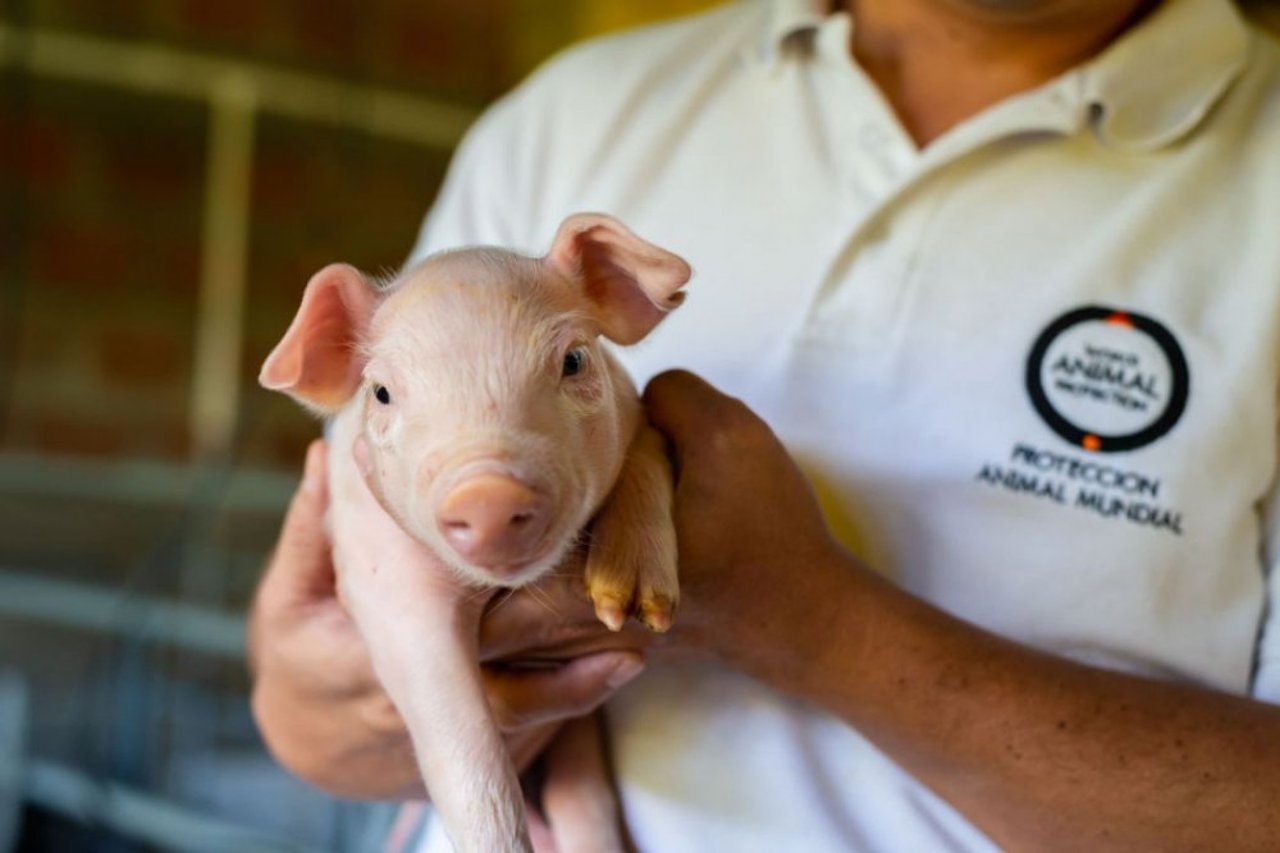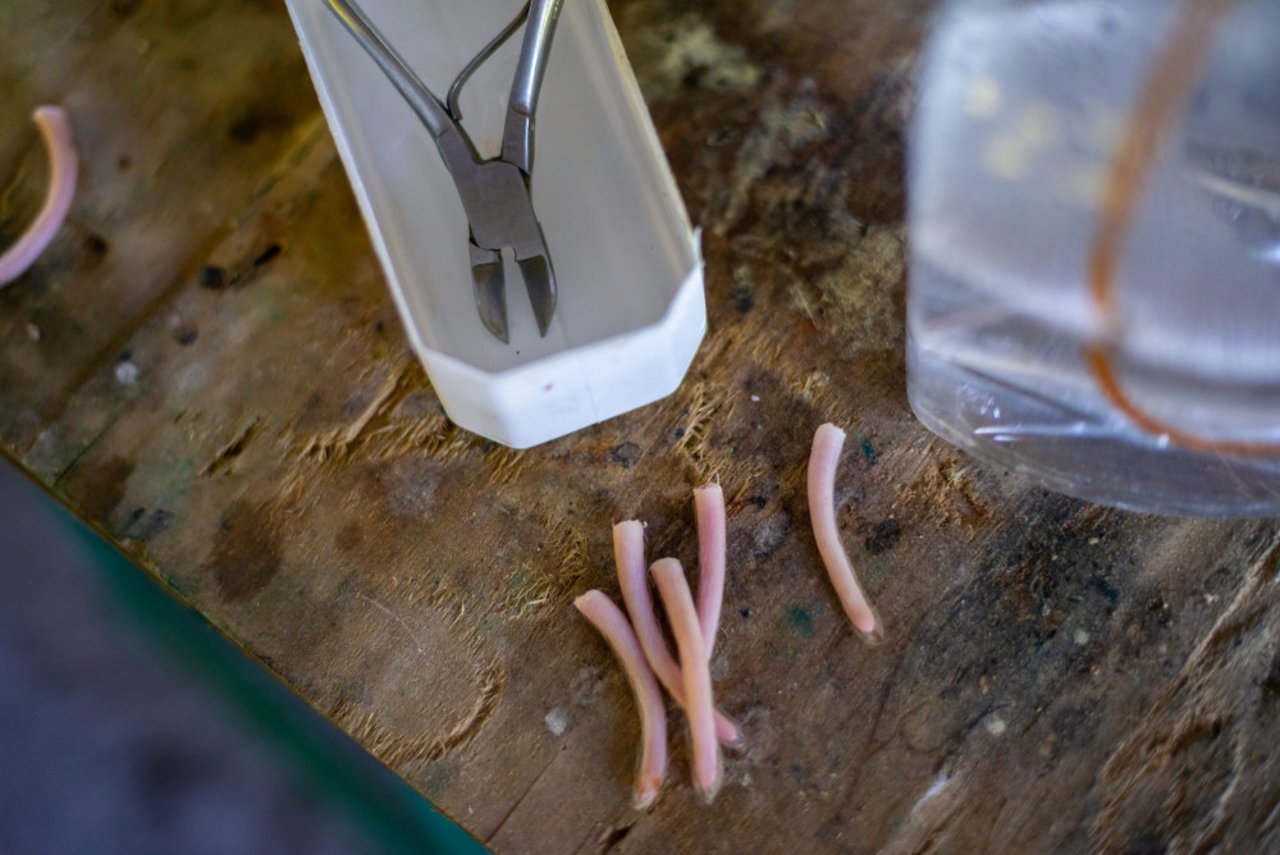
Piglets endure painful mutilations in factory farming
News
As one of the most intensively farmed animals on the planet, pigs suffer from the moment they are born. It’s time to end their suffering!
Painful mutilations
Most people aren’t aware that in their first week of life, piglets are forced to endure painful mutilations, often without pain relief.
This includes having their tails cut off, their ears being notched to identify them, their teeth being clipped and male piglets being castrated.
World Animal Protection staff member holding a piglet on a factory farm
Natural instincts denied
The mother pig has a natural instinct to nest to prepare for the birth of their piglets, but she cannot do this in a steel cage on a factory farm.
When her piglets are born, she can’t always reach them to form a bond. Mother pigs are intentionally bred to have litters so large there aren’t even enough teats to feed all her piglets.
Piglets are also removed from their mother so she can breed again as quickly as possible.
This is not only distressing for both mother pig and piglets, but also has health implications for pigs and for people.
Piglets weaned too early are more likely to develop illness and disease, meaning farmers routinely give them antibiotics to try and prevent them from getting sick, rather than preserving antibiotics to treat sick animals.
Consumers want change
We know people want piglets to have better lives.
Polling by World Animal Protection in 11 countries across Europe, the Americas and Australasia, demonstrates that people are horrified when they find out about the treatment mother pigs and piglets endure.
More than 60% of people in each country said they would ‘probably’ or ‘definitely’ not buy pork from a supermarket that sourced from systems where piglets experience teeth grinding, cutting or tail docking and castrations, sometimes without pain relief.
Between 80% to 93% of people surveyed in each country also believe it is important pigs are reared with higher welfare standards.
Cut off piglet tails on a table next to pliers
Raise Pigs Right asks are backed up by facts
Pigs are thought to be as smart as a three-year-old child and have a range of behaviours similar to people. But, as they grow up in cramped, concrete pens with nothing to do, they may redirect their frustration by biting one another’s tails.
However, removal of tails does not solve the problem.
Giving pigs more space and material like straw, or other edible materials, to manipulate does work, and results in animals being less stressed and tail biting being minimised.
By allowing piglets to remain with their mother for longer before weaning and giving pigs more room to move with enrichment to express natural behaviour, means pigs are happier and healthier.
They have better immunity and are less susceptible to disease, significantly reducing the need for routine antibiotics: this change is good for pigs and good for people.
Help move companies to raise pigs right
As demand for meat continues to grow, it is vital pigs in factory farming have healthy, good lives.
Supermarkets are the largest buyers and sellers of pork, and they care what their customers think and where they spend their money.
The more people who put pressure on supermarkets to improve the welfare of pigs, the more likely they are to listen, and piglets can be freed from a life of suffering.
Join our movement to end animal cruelty.
By Jacqueline Mills, head of campaign - animals in farming for World Animal Protection
Pigs are thought to be as smart as a three-year-old child and have a range of behaviours similar to people

